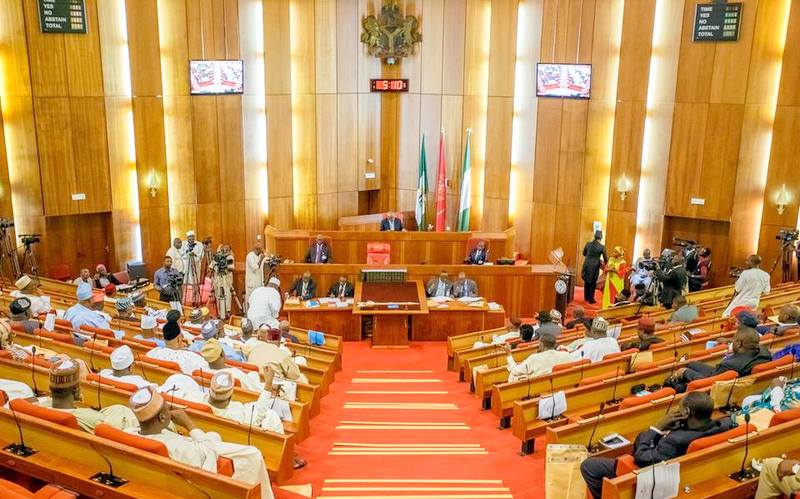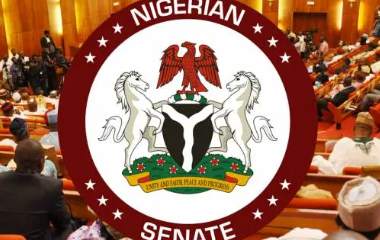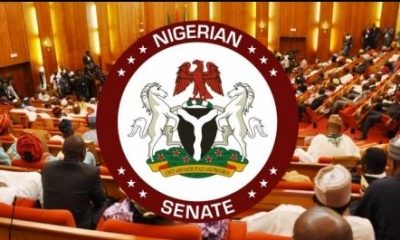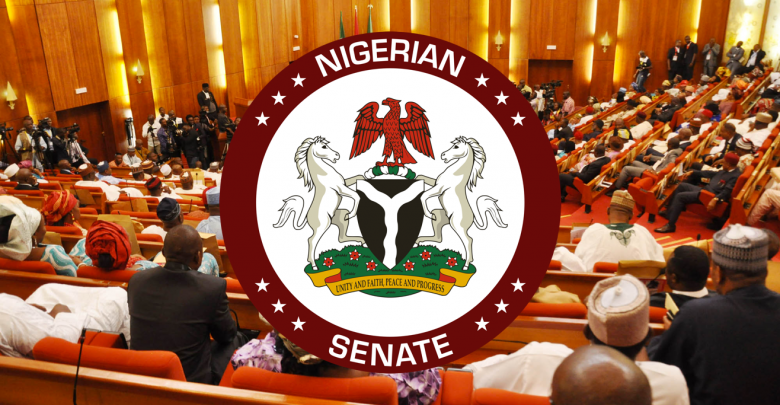The Senate has unanimously approved the inclusion of former presidents of the Senate and former speakers of the House of Representatives as members of the Council of State.
The decision of the Senate followed an electronic voting on the report of the committee on Constitution review which sought to alter certain sections of the 1999 Constitution.
According to the decision of the Senate, the council of state which usually comprises serving and pasts presidents and heads of state as well as the serving president and speakers of the legislature will now include past presidents and speakers.
All 95 Senators who were present voted in favour of the bill.
However, only past leaders of each of the chambers that were not impeached during their tenure are eligible to become members of the council.
The Senate also approved the alteration bill seeking to reduce from six months to three months, the period of time within which a president can authorise withdrawal from the confederation account before the passage of the budget of a particular year.
The Senate for the second time also approved financial autonomy for State Houses of Assembly to get their funding directly from the federation accounts rather than rely on the state government to be funded.
During the last Constitution review, the National Assembly approved financial autonomy for the states, however in a turn of events, the State Assemblies themselves rejected the autonomy having voted no to financial autonomy when the matter was brought before them as part of the process of Constitution amendment.
ALSO SEE: Cabal now runs Nigerian ports, drives fraud to N30tn — Senate
The upper legislative chamber also approved the abrogation of joint accounts for States and Local Government and provided for Local government to operate their special accounts called the Local Government Account.
The Senate also approved the alteration that only democratically elected local government councils will be recognised and funded from the federation account.
Also approved was granting of immunity to lawmakers and indemnify them from anything they say during the course of plenary or committee meeting.
The Senate also approved that the president and governors should have a time frame after taking office within which to submit ministerial nominees or list of commissioners in the case of the governors.
The Senate however rejected the alteration which would have mandated states to ensure that 20 per cent of state commissioners appointed are women.
The Senate also approved the change of name of the Nigerian Police Force to the Nigeria Police to reflect their core mandate. 87 out of the 96 lawmakers present voted yes.
The inclusion of independent candidates to contest elections was also okayed by the Senate as 62 senators voted in favour of the Independent Candidature Bill.
Any person who functioned in capacity as acting president or governor can only serve as an elected president or governor only once.
This implies that that once the individual is re-elected into the office which he had served in acting capacity, he cannot contest an election into that same office.
If this approvals sail through the entire process of the amendment, it means that former President Goodluck Jonathan can no longer contest the presidential election having acted as president and served a fresh 4 year term afterwards.
The Senate also approved the separation of the Office of the Accountant General of the Federation from the Office of the accountant general of the Federal Government.
Following the rejection of the lawmakers, a woman who married out of her state or Local government of origin will not have the choice to decide if to contest an election as an indigene of her place of origin or her place of marriage.
This will also apply in the case of political appointment as the woman would not have the choice whether to be appointed as an indigene of her place of origin or her place of marriage.
The Senate also approved for the establishment of the Investment and Securities Tribunal.
The age qualification for persons contesting for elective offices was also reduced approved for reduction by the Senate.
The upper legislative Council further approved that the president or governor must submit the appropriation bill of the proceeding financial year not later than 90 days before the expiration of the current financial year.
The Decree that established the National Youth Service Corps (NYSC) was also deleted from the Constitution to allow for its amendment.
Other decrees which the senate approved for deletion for the Constitution were the Public Complaint Commission and State Independent Electoral Commissions.
However, the bill seeking to delete the Land Use Act from the Constitution was rejected by the lawmakers as only 44 senators voted in support of the bill.

 Entertainment5 days ago
Entertainment5 days ago
 Health1 week ago
Health1 week ago
 Health4 days ago
Health4 days ago
 Football1 week ago
Football1 week ago
 Football1 week ago
Football1 week ago
 Education6 days ago
Education6 days ago
 Crime4 days ago
Crime4 days ago
 Crime1 week ago
Crime1 week ago









